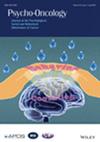抑郁症对乳腺癌幸存者坚持糖尿病自我管理行为的影响
IF 3.3
2区 医学
Q2 ONCOLOGY
引用次数: 0
摘要
目标乳腺癌幸存者(BCS)的抑郁率较高,而抑郁与较低的药物、饮食和体育锻炼依从性有关。管理糖尿病(DM)需要坚持其中几种自我管理行为(SMB),而乳腺癌幸存者患糖尿病的风险更高。我们研究了抑郁症状是否与BCS队列中坚持糖尿病自我管理行为(SMB)有关。抑郁症用医院焦虑抑郁量表(HADS)进行评估。糖尿病药物治疗、饮食和体育锻炼的依从性分别通过药物依从性报告量表(MARS)、糖尿病自我护理活动评估总结(SDSCA)和国际体育锻炼问卷(IPAQ)进行自我报告。采用广义线性方程模型评估了抑郁症状与不坚持SMB的关系,并对年龄、种族、婚姻状况、教育程度以及对癌症和DM风险的看法进行了调整。结果在244名患有DM的BCS中,不坚持药物治疗、饮食和/或体育锻炼的人抑郁评分较高(p <0.01)。在调整分析中,较高的抑郁评分与不坚持饮食(OR = 1.16,p <0.001)和不坚持体育锻炼(OR = 1.18,p <0.001)独立相关,但与不坚持用药无关。结论在这组 BCS 中,抑郁评分较高与不坚持 DM SMB 相关。这些发现强调了解决 BCS 中抑郁症状问题的重要性,有助于改善 DM 药物、饮食和体育锻炼的依从性。本文章由计算机程序翻译,如有差异,请以英文原文为准。
The Impact of Depression on Adherence to Diabetes Self‐Management Behaviors in Breast Cancer Survivors
ObjectiveBreast cancer survivors (BCS) have higher rates of depression which is associated with lower adherence to medications, diet, and physical activity. Managing diabetes (DM) requires adherence to several of these self‐management behaviors (SMB), and BCS have an increased risk of DM. We investigated whether depressive symptoms were associated with adherence to DM SMB in a cohort of BCS.MethodsBCS with DM were surveyed semiannually for 2 years. Depression was assessed with the Hospital Anxiety and Depression Scale (HADS). Adherence to DM medication, diet, and physical activity was self‐reported using the Medication Adherence Report Scale (MARS), Summary of Diabetes Self‐Care Activities Assessment (SDSCA), and International Physical Activity Questionnaire (IPAQ), respectively. Using generalized linear equation modeling, the association of depressive symptoms with nonadherence to SMB was assessed, adjusting for age, race, marital status, education level, and beliefs about cancer and DM risk.ResultsAmong 244 BCS with DM, those who were nonadherent to medication, diet, and/or physical activity had higher depression scores (p < 0.01). In adjusted analyses, higher depression scores were independently associated with dietary (OR = 1.16, p < 0.001) and physical activity nonadherence (OR = 1.18, p < 0.001) but not with medication nonadherence. Concerns about medications was independently associated with medication nonadherence (OR = 1.17, p = 0.024).ConclusionsHigher depression scores are associated with nonadherence to DM SMB in this cohort of BCS. These findings highlight the importance of addressing depressive symptoms in BCS to help improve adherence to DM medications, diet, and physical activity.
求助全文
通过发布文献求助,成功后即可免费获取论文全文。
去求助
来源期刊

Psycho‐Oncology
医学-心理学
CiteScore
6.30
自引率
8.30%
发文量
220
审稿时长
3-8 weeks
期刊介绍:
Psycho-Oncology is concerned with the psychological, social, behavioral, and ethical aspects of cancer. This subspeciality addresses the two major psychological dimensions of cancer: the psychological responses of patients to cancer at all stages of the disease, and that of their families and caretakers; and the psychological, behavioral and social factors that may influence the disease process. Psycho-oncology is an area of multi-disciplinary interest and has boundaries with the major specialities in oncology: the clinical disciplines (surgery, medicine, pediatrics, radiotherapy), epidemiology, immunology, endocrinology, biology, pathology, bioethics, palliative care, rehabilitation medicine, clinical trials research and decision making, as well as psychiatry and psychology.
This international journal is published twelve times a year and will consider contributions to research of clinical and theoretical interest. Topics covered are wide-ranging and relate to the psychosocial aspects of cancer and AIDS-related tumors, including: epidemiology, quality of life, palliative and supportive care, psychiatry, psychology, sociology, social work, nursing and educational issues.
Special reviews are offered from time to time. There is a section reviewing recently published books. A society news section is available for the dissemination of information relating to meetings, conferences and other society-related topics. Summary proceedings of important national and international symposia falling within the aims of the journal are presented.
 求助内容:
求助内容: 应助结果提醒方式:
应助结果提醒方式:


